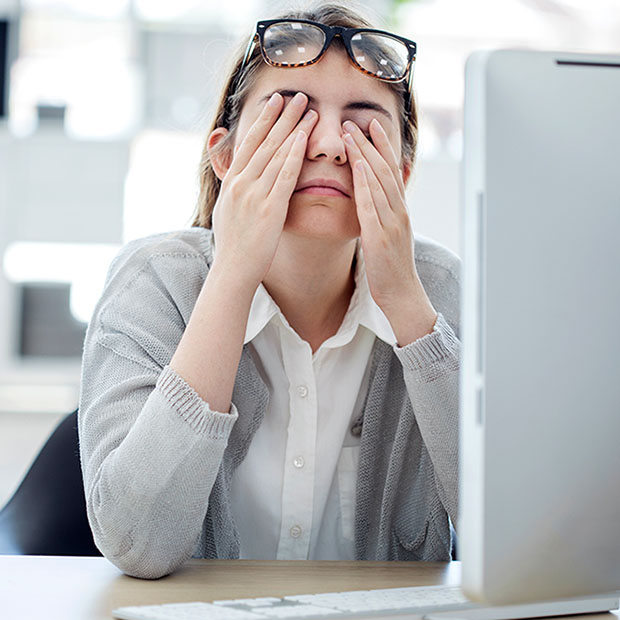The Connection Between Eyes and Sleep

Being sleep-deprived can hit the body like alcohol, but how does it affect our eyes?
Achieving adequate sleep is essential for overall and ocular health, and interestingly, the relationship is reciprocal. By managing what we expose our eyes to before bedtime, we can enhance the quality of our sleep.
How Lack of Sleep Affects Your Eyes
Experiencing a night or two of poor sleep can make us feel irritable and foggy, making it hard to focus. But when sleep deprivation becomes chronic, the consequences are more severe. It can weaken the immune system, complicate weight loss efforts, raise blood pressure, contribute to mood instability, and impair memory.
For our eyes, the necessity of sleep is just as critical. At least five hours per night are required to reset the eyes fully, preparing them for another day’s demands. Insufficient rest can lead to increased instances of eye strain, dryness, and twitching. However, by understanding and leveraging our visual habits, we can significantly improve our sleep quality.
The Problem with Blue Light at Night
Historically, the only source of blue light was the sun, and our bodies are programmed to respond to it by waking up. However, the blue light emitted from screens can trick our brains into thinking it’s still daylight, disrupting our natural sleep preparations. This confusion can make falling asleep particularly challenging if you’ve been using electronic devices close to bedtime.
Strategies to Reduce Blue Light Exposure
To mitigate the impact of blue light on your sleep cycle, consider reducing screen time in the hour before bed. While avoiding screens completely is ideal, using a blue light filter can also be beneficial. Experiment with these adjustments to see if they improve your ability to fall asleep more quickly.
Contact Lens Care for Better Sleep
The cornea is the only part of the body that receives oxygen directly from the air, not through blood vessels. Modern contact lenses are designed to allow more oxygen through, but it’s still advisable to remove them at night. Taking your contacts out while sleeping reduces the risk of infections and gives your corneas essential breathing room. If you prefer to wear contacts overnight, ensure they are specifically approved for extended wear.
Emphasizing Preventive Eye Care
At our clinic, we’re ready to discuss how improving your sleep can bolster your eye health. We can address any concerns during your next eye exam and provide tailored advice for your lifestyle. In the meantime, focus on achieving a healthy sleep routine and adhere strictly to contact lens care guidelines.
Remember, dimming blue light before bedtime isn’t just good practice — it’s a step towards ensuring your eyes remain healthy and vibrant.
Improve Your Sleep and Eye Health Together!
Healthy sleep is a pillar of good eye health. If you have any questions about the relationship between sleep and eye health or any other concerns, don’t hesitate to reach out. Let’s ensure your eyes are as rested as the rest of your body — dim that blue light!
